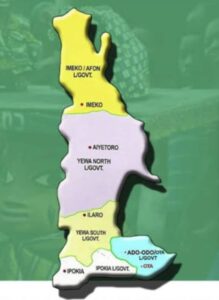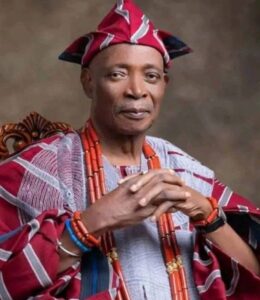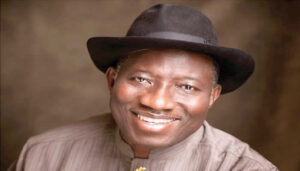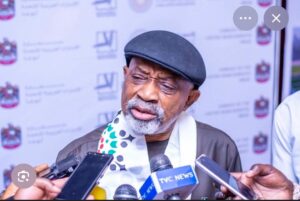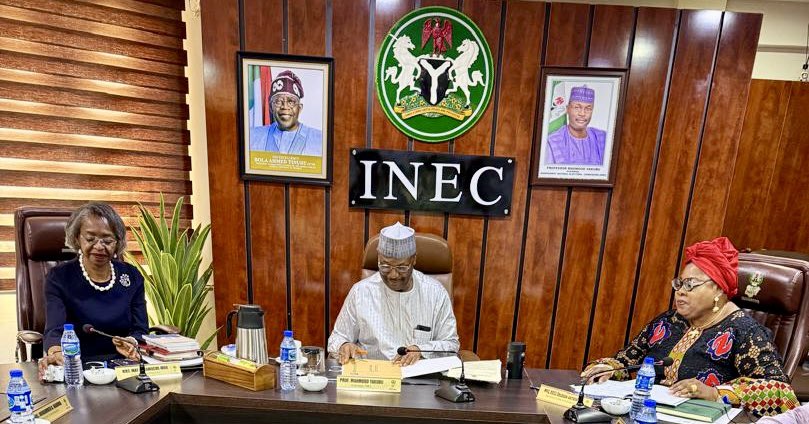
When Fake Patriots Peddle Conspiracy Theories Against INEC
By Oluwaferanmi Ayinde
Serial parochial and hypocritical criticisms of the Independent National Electoral Commission (INEC) and its Chairman, Prof Mahmood Yakubu, have become the pastime of some self-serving moralists, masquerading as patriots and opposition leaders. But their motive is nowhere near patriotism, only a desperate call for invitation to the “national dining table.” Their modus operandi is simple: give INEC a bad name to hang it. Thankfully, they are failing.
I was amused when the former Director of the Muhammadu Buhari’s 2019 Presidential Campaign Council, Mr. Rotimi Amaechi in a recent interview he granted a national television outfit, said that the All Peoples Congress (APC) wouldn’t have won the 2015 Presidential Election if Prof. Yakubu had been in charge of INEC. Remember that Amaechi was also a former Rivers State Governor and Minister of Transportation.
The immediate question is, who was in charge of INEC in 2019, when Amaechi’s principal, former President Buhari contested and won that year’s presidential election? Was it not Prof Yakubu? Could Amaechi have forgotten his role as Buhari’s Director General of Campaign for that election so soon? Not likely. After Buhari was declared winner at the time, Amaechi had no issues at all with either INEC or its Chairman. To him, that election was free and fair. Thereafter, he went about appealing to other contestants in the race to embrace the spirit of sportsmanship, concede defeat and join hands with the winner to take Nigeria forward. In fact, at a press briefing he held on March 5, 2019, Amaechi, among other things, said: “It is only those who fail elections that gather for meetings, while the winners just gather to pop champagne and drink to their victory.” That was how sweet the victory of his party and candidate in the 2019 polls felt for him.
Fast forward to 2023. Amaechi wanted to be President, which is fair enough. He participated in the All Progressives Congress (APC) Presidential primary election but lost. INEC did not conduct the election. But since then, for reasons best known to him, Amaechi became a turncoat of some sort, transforming into a bitter critic of INEC and its Chairman.
Many subjective supporters of the Labour Party (LP) and the Peoples Democratic Party (PDP) have also continued to delude themselves by insisting that they both won the 2023 presidential election that they knew they did not win. Even after their parties lost at the Supreme Court, they have continued to denigrate INEC on social media. Not only that, they have also continued to berate the judiciary, with some of them labeling the Supreme Court Justices as “compromised jurists.” There is no name and conspiracy theory they have not peddled to tarnish Prof Yakubu’s image. But to their utter disappointment, he has refused to respond to their antics and to be drawn into their pits.
I agree that the 2023 general election was not perfect. In any case, who can show me one country in the world where perfect elections are conducted? Not even in the United States, the so-called bastion of democracy where we copied our presidential system from. The memory of the 2020 presidential election controversy, which led to what analysts have described as an instigated but failed insurrection is still very fresh.
An objective assessment of INEC’s trajectory since 2015, devoid of petty sentiments, will reveal positive developments which, unfortunately in my view, have been grossly under-reported. In contrast to what the modern-day Pharisees have been saying, I think the 2023 general elections, comprising the presidential, national assembly, governorship, and state assembly sets, met the required threshold of substantial compliance, meaning they were free, fair, and credible.
I have my reasons. The election produced several firsts. For the first time since 1999, four political parties won governorship seats, unlike in the past when only two political parties dominated the scene. Seven parties won senatorial seats, while eight parties secured federal constituencies. Nine parties also won seats in the State Assembly, paving the way for unprecedented diversity in the national and state legislatures.
Since 2015, when Prof. Mahmood Yakubu took office, several innovations and milestones that would stand the test of time have been implemented. One of the technological innovations is the multi-purpose Bimodal Voter Accreditation System (BVAS), which replaced the Smart Card Reader (SCR) after it became clear that fraudulent politicians had found a way to circumvent the SCR. That singular action effectively ended voting by proxy, leading to the subsequent widespread dumping of Permanent Voters’ Cards (PVCs) in forests and shrines by those who had warehoused them for election rigging purposes. It also led to a spike in vote buying, as it became clear to politicians that only real voters could cast a valid vote in an election.
Under Prof. Yakubu, there has been a massive expansion of voter access to polling units. For the first time in 25 years, the total number of polling units in Nigeria increased from 119,974 to 176,846. Also, for the first time, the Commission introduced an online voter registration portal, which enabled voters aged 18 and above to log on to the Commission’s portal, upload their information, and validate their registration at designated centres. Approximately 9.5 million new voters registered between June 2021 and July 2022, increasing the National Register to its current figure of 93,469,008.
The Commission was the first Electoral Management Body (EMB) in Africa to produce a Policy on Conducting Elections in the Context of COVID-19 in 2020, a year when the world was reeling from the devastating effects of the virus. The policy enabled the Commission to conduct several elections safely during the pandemic. There was also the enactment of a new Electoral Act 2022, which the Commission vigorously campaigned for with the assistance of civil society. Among other things, the new Electoral Act made it possible for the Commission to receive its funds for the general election one year in advance, just as it was given the power to review the result of an election in a situation where a Returning Officer was forced to declare the wrong person as the winner.
The INEC Result Viewing (IReV), established by the Commission to promote transparency in the result management process and provide citizens with the opportunity to view polling unit results in real time, was a game-changer. Despite the unexpected glitch that temporarily froze the portal during the 2023 Presidential election and which was quickly rectified, the IReV, which is not a result collation outfit, has given citizens more insight into the election result management architecture than ever before.
The Commission has also made significant gains in inclusivity matters. In recognition of the importance attached to the interests of Persons with Disabilities (PWDs), the Commission created a separate Department of Gender and Inclusivity to address the needs of persons in extraordinary circumstances, enabling them to participate actively in the electoral process. Through this route, the Commission has reconfigured its polling booths, provided magnifying glasses for individuals living with albinism, and braille guides for persons with visual challenges, among others.
There are many more. It is thus unfortunate that professional naysayers would, due to purely selfish interests, continue to push destructive narratives, reckless statements, lies and conspiracy theories in a determined effort to destroy one of the foundations of democracy in Nigeria. They are bound to fail.
Dr Ayinde, an entrepreneur, lives in Uyo.
Share your story or advertise with us: Whatsapp: +2348033202396 Email: sentinelnewsng@gmail.com



